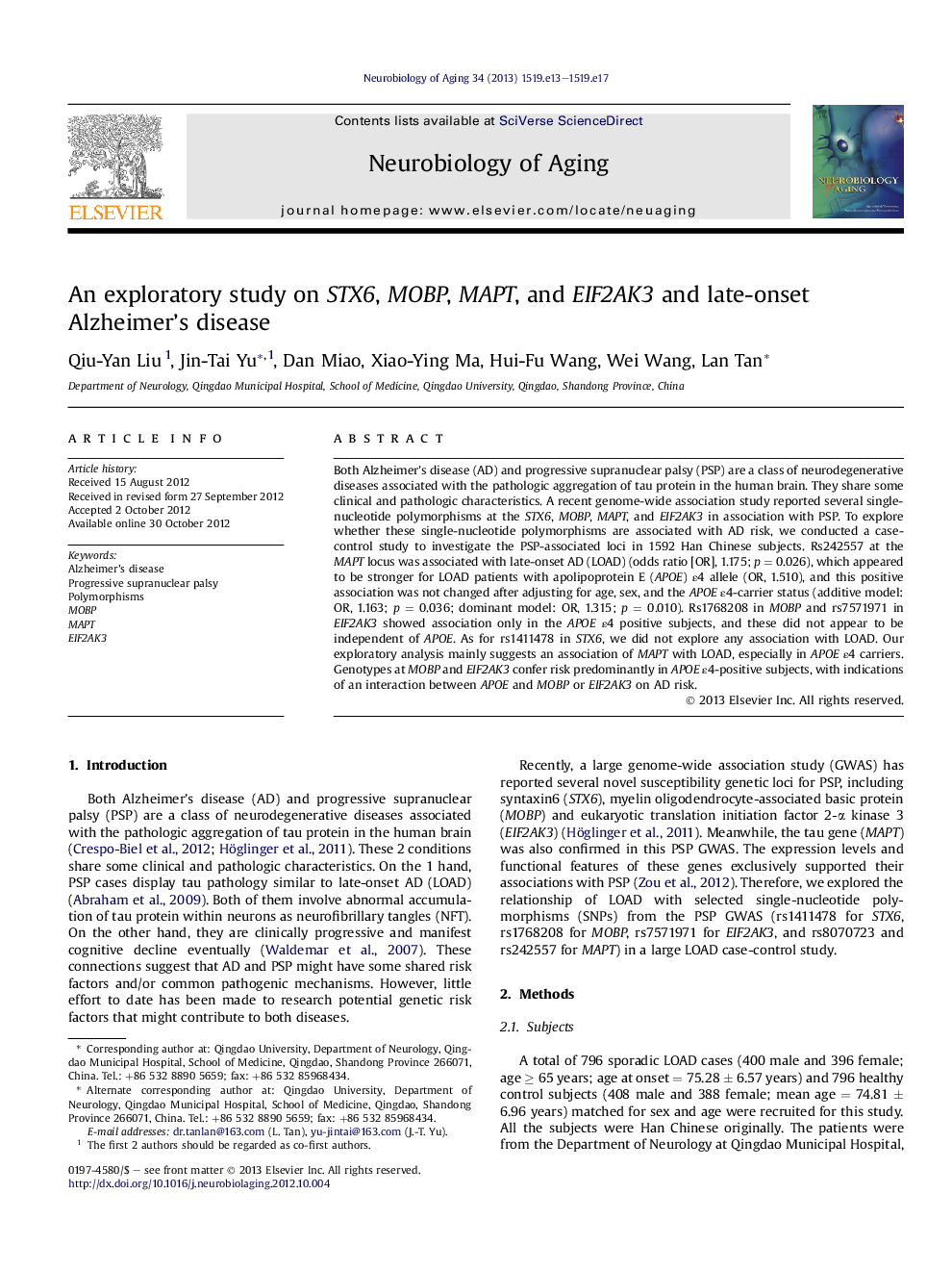| Article ID | Journal | Published Year | Pages | File Type |
|---|---|---|---|---|
| 6807645 | Neurobiology of Aging | 2013 | 5 Pages |
Abstract
Both Alzheimer's disease (AD) and progressive supranuclear palsy (PSP) are a class of neurodegenerative diseases associated with the pathologic aggregation of tau protein in the human brain. They share some clinical and pathologic characteristics. A recent genome-wide association study reported several single-nucleotide polymorphisms at the STX6, MOBP, MAPT, and EIF2AK3 in association with PSP. To explore whether these single-nucleotide polymorphisms are associated with AD risk, we conducted a case-control study to investigate the PSP-associated loci in 1592 Han Chinese subjects. Rs242557 at the MAPT locus was associated with late-onset AD (LOAD) (odds ratio [OR], 1.175; p = 0.026), which appeared to be stronger for LOAD patients with apolipoprotein E (APOE) ε4 allele (OR, 1.510), and this positive association was not changed after adjusting for age, sex, and the APOE ε4-carrier status (additive model: OR, 1.163; p = 0.036; dominant model: OR, 1.315; p = 0.010). Rs1768208 in MOBP and rs7571971 in EIF2AK3 showed association only in the APOE ε4 positive subjects, and these did not appear to be independent of APOE. As for rs1411478 in STX6, we did not explore any association with LOAD. Our exploratory analysis mainly suggests an association of MAPT with LOAD, especially in APOE ε4 carriers. Genotypes at MOBP and EIF2AK3 confer risk predominantly in APOE ε4-positive subjects, with indications of an interaction between APOE and MOBP or EIF2AK3 on AD risk.
Related Topics
Life Sciences
Biochemistry, Genetics and Molecular Biology
Ageing
Authors
Qiu-Yan Liu, Jin-Tai Yu, Dan Miao, Xiao-Ying Ma, Hui-Fu Wang, Wei Wang, Lan Tan,
